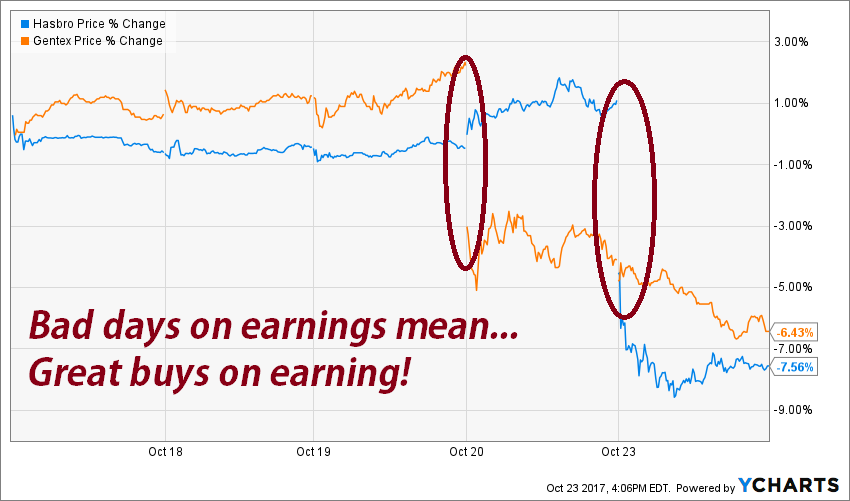The market is going up, you are making money; everybody smiles. I’ve worked in the financial industry for over a decade and this situation has struck me: when my clients were making money, they didn’t want me to call them. I’ve received one call from a client once telling me it wasn’t normal to make that much money in a short period of time. He invested 250K in November 2008 and was calling me during the summer of 2009… you can imagine what his 250K looked like back then… caching!
During bull market, I used to insist to meet with my clients. In fact, I insisted to meet with them no matter what was happening on the stock market. Quick tip for those who wants to get more clients in this business; call your prospect when everybody loses money… nobody calls them! The reason I wanted to meet with my clients is to make sure they understand where we were in the market cycle and prepare them to make some moves. Has your advisor called you recently? Because there are some very interesting moves to make now… Here are a few lines he should have dropped to your ears recently.
The market is over reacting both ways
Some say the market is going too high too quick. But the market is not only irrational on the upside; there are some crazy reactions on the downside recently. Here are 2 examples I’m following closely: Gentex (GNTX) and Hasbro (HAS).
Gentex successfully increased its payouts for 6 consecutive years. Over the past 5 years, GNTX maintained a 9% annualized growth rate. Management increased its distribution by 11% this year and it seems that we can expect additional growth in the years to come.
Hasbro has been a strong dividend grower over the past 5 years. HAS shows a 9.58% CAGR dividend growth rate over the past 5 years. As the dividend rose, the stock price also jumped by 159% which explains the “low yield” of 2.50%. This quick drop is great entry point from my perspectives.
Both companies have declared good earnings late in October, but the market slammed them for weaker guidance:

Source: Ycharts
Those highs and lows in the market create great buy opportunities and a good advisor will pick them for you… or you can count on DSR to spot them! Hahaha!
Fiscal moves to save taxes
You can’t really control what happens on the market. But you can control how much you will pay in taxes and when you will do it. Another reason why your advisor should call you is to review your portfolio for potential tax moves. If you hold a few losers in your portfolio, now is the time to sell them before the year ends. Then, you can use this capital loss against previous capital gains, or you can sell a winner to offset your gain. Then, you can buy back your positions 30 days later and keep your fiscal move. Please check with your accountant (I don’t know if this rule applies in the U.S., but it works in Canada) before making any trades, but here’s an example of how it should work:
#1 You hold shares of Target (TGT) (poor you!) showing a paper loss of $8,000.
#2 You also hold shares of Lockheed Martin (LMT) showing a paper profit of $8,000.
#3 You sell both positions and report in your tax income that you lost $8,000 on a trade while making $8,000 on another one. No taxes need to be paid on your gain.
#4 After 30 days, you buy back both positions.
#5 Chances are you will hold both TGT and LMT at a similar price, but will not have to declare any gains from your LMT sales in the future (unless it keeps going up!).
Your advisor should be the one highlighting these kinds of moves in your portfolio.
Make sure your portfolio is “ready”
Another reason why your advisor should call you now is to make sure your portfolio is “ready” for a market crash. If you are holding any “lucky” positions where the stock grew up rapidly and shouldn’t, maybe it’s time to cash your profit and move toward more stable holdings. We all have those “misfits” in our portfolios. Sometimes, they are very good move, but it’s time to get rid of them.
The end of the year is also a very good timing to review each of your holdings and make sure they still fit your investment thesis. I did this exercise with my portfolio this summer; you can read about it here if you want inspiration to apply this process on your own holdings.
You pay your advisor, he should be working for you
If you are dealing with an advisor, he must bring something on the table. In an era where you can easily manage your portfolio with investing tools found on the internet or build an ETF portfolio, your advisor should give you additional value more than ever. Some of them do, those are the ones who called you recently. The others… well… maybe it’s time for another portfolio review!
Disclaimer: I hold shares of HAS and GNTX
